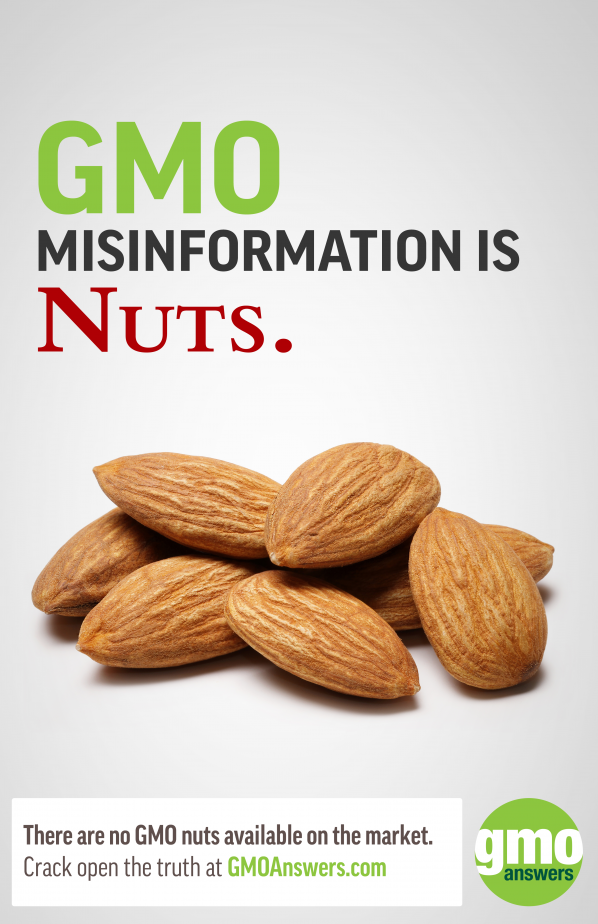Six Tips to Evaluating that Exciting Science Article You Just Read
This post was originally published on GMO Answers' Medium page.
By Nathaniel Graham
Nathaniel (Nat) Graham is a post-doctoral associate at the University of Minnesota-St. Paul. His research focuses on utilizing genomic engineering techniques to examine biological questions in crop species. During his graduate studies, he founded a local program called “Science on Tap,” designed to give graduate students the opportunity to present their research to the community.
(Image Credit: Kaitlin Baker)
Almost every day there is a new headline about an awesome new science discovery, and that is great! The problems start when that headline contradicts the discovery from the week before. Is there a way to figure out which headline is telling the truth, and which one is exaggerating to get your clicks? I’ve put together six tips to help:
1. Consider the source
The first thing I do when I come across a science article online is look to see who it was posted by and who wrote it. I also check to see what the purpose of the organization hosting the article is. Every article has a purpose, and understanding the standpoint of the organization hosting the article will give you some insight into any inherent biases that existed during writing. The larger media/news sites may host science articles simply to inform, but they also tend to over-exaggerate the findings to appeal to the larger audiences and tend to not present the nuances that tend to accompany science work.
2. Watch the excessive claims
I am always skeptical if an article claims that a single study has solved an issue we’ve been working on for decades. The main reason is science doesn’t tend to work like that. A single study will evaluate a small portion of an issue, and it is the cumulative work of many in a field that can be used to make these sorts of broad claims.
I see this happen all the time in my field of plant genetic engineering, where a media article will claim that someone has found the cure to world hunger with a new genetically engineered organism. Most of the time, the researcher has found a way to make a plant resistant to pests or have more nutrients, which is great, but will not singularly feed the world. Keep in mind this goes the other direction as well. I’ve seen hundreds of articles that claim to have found the single piece of research that proves that genetic engineering is unsafe or dangerous.
3. See who is reporting on it
One trick you can use to help you decide if the study is as important as the author claims is to see who all is reporting on it. If only a few blogs or small organizations are reporting on it, it may not be as groundbreaking as something that is in every major news outlet. For the most part, the major news organizations have full-time science reporting staff that are scientists themselves and have some intuition on how important a study is. Remember, if a study really did find the cure for cancer, everyone will be talking about it.
4. Are you getting both sides?
This point is more for the politically charged subjects, but it should be considered for any article you read, science or not. There are two-sides to every debate, and a good journalistic piece should tell you both sides. Did the author give you the background of the issue at hand and why both sides feel the way they do? Very rarely will this be the first time this issue will have been discussed, so having some context will give you a perspective on whether the given study follows the scientific consensus.
5. What are the experts saying?
Sometimes it is easy to forget that scientists are people too. We will discuss big news just like anyone else, and in the age of social media, we are often doing that online. One of the easiest ways to figure out if that exciting science article is really that exciting is to see what the scientists in the field are saying. Try and find a good expert community to ask. There are plenty all around the internet that have the goal of bringing together scientific experts and the community. I have found lots of luck just looking for Facebook or Twitter groups.
When you are seeking advice from experts remember that not everyone on the internet is who they say they are, and also remember that just because someone is an expert in one field does not mean they are knowledgeable about another. I consider myself pretty knowledgeable about plant genetic engineering, but you should find someone else if you want to talk about physics. Just because someone is a scientist doesn’t mean they are an expert in the field you are talking about.
6. Check the study
As a last line of defense, you can turn to the study itself. Unless you are an expert in the field, it is generally not advisable to read the whole study. The main reason being that it isn’t designed to be read by someone who isn’t already familiar with the technical aspects of the research. Scientific writing is often dry, and even for experts a one or two-page paper can take a couple hours to read and interpret.
That being said, there are a few things you can do.
A good place to start is the authors themselves. In science papers generally the first and last authors are the most important. The paper will tell you the affiliation of the author for the purpose of the study. You can do an internet search of that institution and the author name to find the lab website.
You can also read over the abstract. The abstract is the paragraph overview the authors provide as a quick summary of the study and results. These can still be pretty technical, but are good for confirming that the study says what the original media article claims it does. Pay attention to words like “may” or “possibly”, these are very important in science writing to convey that results lean one way or the other, but are not definitive.
If you remember these tips the next time you come across a science headline you are curious about, you will be well equipped to decide if it is the real deal or not. If you still aren’t sure, that’s ok! Science is always developing so one of the easiest things you can do is wait and see what happens. A truly big development will inspire more research and study down the line.



